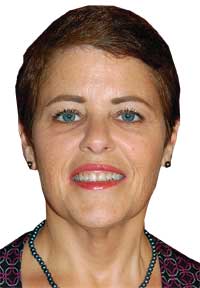Expert Advice On Preparing For Critical Medical Decisions
By Sally Forsberg, RN, MBA // January 23, 2014
BE INFORMED ABOUT AND UNDERSTAND ADVANCE HEALTHCARE DIRECTIVES
ABOVE VIDEO: Hospice of Health First in Brevard County, Florida reviews the benefits and importance of having Advanced Directives for both the patient and family.
BREVARD COUNTY • MELBOURNE, FLORIDA — Florida law supports every competent adult’s right to make decisions regarding their healthcare. These rights assure that a person may also choose whether or not to accept medical tests, treatments, etc.
SpaceCoastDaily.com welcomes Sally Forsberg, RN, MBA, an expert in patient services and rights to address frequently asked questions regarding Advance Directives, including what you need to know regarding end-of–life decisions.
SCM&HL: What are Advance Directives?
MS. FORSBERG: An Advance Directive lets you make your wishes known regarding medical decisions. Typically, there are two types of Advanced Directives: a Living Will and a Healthcare Surrogate Designation. An adult can make an Advance Directive at any time, and they can also change an Advance Directive at any time.
SCM&HL: Why do I need Advance Directives?
MS. FORSBERG: Unfortunately, every year many Americans are involved in serious accidents or suddenly develop an incapacitating illness. By establishing your Advance Directives while you are well, you may express your choices for how much or how little healthcare you want should you not be able to speak for yourself.

By making your wishes known in advance, you can save your loved ones much stress and heartache because they will already know what your desires are. We all saw the unfortunate circumstances and seven year legal battle surrounding the care of Terri Schiavo, who did not have Advance Directives in place when she had sudden cardiac arrest at the age of 27.
Having written Advance Directives will provide those caring for you with clear instructions on your wishes at a time when you may not be able to speak for yourself.
SCM&HL: Who should have Advance Directives?
MS. FORSBERG: Adults of any age should have Advance Directives. Since we cannot predict if we will be the victim of a serious accident or incapacitating illness, it is important for every adult to have Advance Directives in place.
SCM&HL: What documents are included in Advance Directives?
MS. FORSBERG: Advance Directives typically include a Living Will and a Health Care Surrogate Designation. You are not required to do both. You may have a Living Will or a Healthcare Surrogate Designation, or both. You may also include your wishes regarding organ donation with your Advance Directives.
SCM&HL: What if I change my mind later about my Advance Directives?
MS. FORSBERG: Advance Directives may be changed at any time. When you change your Advance Directives, the new document will supersede the older one. You may also rescind your Advance Directives at any time.
SCM&HL: What is a Living Will?
MS. FORSBERG: A Living Will is a document that describes your choices for health care when you have a very serious or terminal illness.

The content of a Living Will may be simple or very detailed in describing your wishes, and, if you choose, you may add some personal additional instructions to your living will.
SCM&HL: Why do I need a Living Will if I am healthy? Why can’t I wait until I am in the hospital to make my Advance Directives?
MS. FORSBERG: No one can predict if they will be in a serious accident, or develop a sudden, debilitating illness. Having a Living Will and Healthcare Surrogate Designation in place assures that your doctors and your loved ones will know who you want to make decisions for you and also what your choices for medical treatment are, should the need arise.
SCM&HL: What’s the difference between a Living Will and a will for when I die?
MS. FORSBERG: A Living Will is a document that describes your choices for health care when you have a very serious or terminal illness, and is effective while you are alive. A will describes your wishes for the disposition of your possessions (estate) after you die. The two documents are totally separate and address different issues.
SCM&HL: What is a Healthcare Surrogate?
MS. FORSBERG: A Healthcare Surrogate is a person you appoint to make medical decisions for you if you are unable to speak for yourself. A Healthcare Surrogate may also be called a “Healthcare Proxy.”
SCM&HL: Whom should I designate as my Health Care Surrogate? Does it have to be a relative?
MS. FORSBERG: No, you are not required to choose a relative to be your Healthcare Surrogate. Your surrogate can be anyone you trust to make medical decisions for you if you are unable to do so yourself. Your surrogate should understand your wishes, agree to carry them out, and be willing to take on this responsibility for you.
SCM&HL: What information does my Healthcare Surrogate need to know?
MS. FORSBERG: You should communicate to your surrogate how much or how little medical treatment you desire if you are faced with a very serious or terminal illness. You may want to provide a copy of your Living Will and Healthcare Surrogate documents to them.

The most important thing is having a discussion with your surrogate to assure he/she fully understands your wishes and is willing to carry them out.
SCM&HL: Can I designate a Healthcare Surrogate but not have a Living Will?
MS. FORSBERG: Yes, you may designate a Healthcare Surrogate but not have a Living Will. But it is in your best interest to have both documents in place to make certain that your wishes are known.
SCM&HL: Where would I find the forms to make Advance Directives? Must an attorney prepare my Advance Directives?
MS. FORSBERG: Many people choose to have their attorney draft their Advance Directives, however, in Florida, you are not required to consult an attorney to formulate your Advance Directives. Forms for Advance Directives are available from many sources, for example, on the internet, from your local hospital, etc.
SCM&HL: Who should have a copy of my Advance Directives?
MS. FORSBERG: Your healthcare surrogate should have a copy of your Advance Directives. You may want to give your primary doctor a copy. Also, keep a copy handy in case you are hospitalized. The hospital will ask if you have any Advance Directives. Give a copy of your Advance Directives to the nurse that admits you.
SCM&HL: Will an Advance Directive from another State be honored in Florida?
MS. FORSBERG: Yes. An Advance Directive that is valid in one state is usually honored in other states. You may want to check with your personal attorney in your current state to be sure.
SCM&HL: Do my Advance Directives need to be notarized to be valid?
MS. FORSBERG: No. In the State of Florida, there is no requirement to have your Advance Directives notarized. In Florida, the only requirement for an advance directive is that two people, one of whom may not be a spouse or blood relative, witness it.
SCM&HL: What is a DNR?
MS. FORSBERG: DNR stands for Do Not Resuscitate. A DNR is a doctor’s order, which identifies a person who is seriously ill and does not wish to be resuscitated (treated) when the heart stops or breathing ceases (cardiac or respiratory arrest).
SCM&HL: What if I want to be an organ donor? How do I make my wishes known?
MS. FORSBERG: In Florida, it is as simple as registering online. Florida’s Agency for Healthcare Administration (AHCA) has created Donate Life Florida, which is a registry for those interested in donating their organs, tissues or eyes.
 Interested donors may register online at www.donatelifeflorida.org or they may register to be an organ donor when they renew their driver’s license, either in person or online. Organ donation saves lives every day. In addition, it is important to let your Health Care Surrogate know that you have chosen to be an organ donor.
Interested donors may register online at www.donatelifeflorida.org or they may register to be an organ donor when they renew their driver’s license, either in person or online. Organ donation saves lives every day. In addition, it is important to let your Health Care Surrogate know that you have chosen to be an organ donor.
SCM&HL: What will happen if I don’t make an Advance Directive? Who will make health care decisions for me if I can’t speak for myself?
MS. FORSBERG: If you have not designated a Healthcare Surrogate, there are laws that will determine who will make medical decisions for you if you cannot speak for yourself.
The person designated by law may not be the person you would want making medical decisions for you. That is why it is important to have your Advance Directives in place, so that your wishes will be made known if you cannot speak for yourself.
SCM&HL: Where may I obtain more information on Advance Directives?
MS. FORSBERG: Your personal attorney can provide more information and hospitals and health care facilities will usually have educational materials on Advance Directives.
Related Websites:
• www.aarp.org
• www.agingwithdignity.com
• www.ahca.myflorida.com
• www.caringinfo.org
• www.donatelifeflorida.org
• www.floridabar.org
• www.floridahealthfinder.gov
• www.floridahealthstat.com
• www.health-first.org/hospitals_services/advance_directives.cfm
• www.nationalhospicefoundation.org
ABOUT THE AUTHOR

Ms. Forsberg has been a registered nurse for 30 years, received her Bachelor’s Degree in nursing from Thomas Jefferson University in Philadelphia, and her Master’s Degree in Business Administration from the University of Miami. Sally has many years of hospital experience in various clinical and nursing leadership roles as a staff RN, Nurse Manager, Director of Nursing, and nurse executive, and is now the Director of Quality for the Florida Hospital Association Hospital Engagement Network. Her experience, knowledge and expertise in patient safety, service and satisfaction uniquely qualifies her to lead quality programs as a consultant and educator for hospitals and hospital systems in Florida and across the nation. Sally has been married for 38 years to Paul Forsberg, the Fire Chief for the City of Melbourne.











